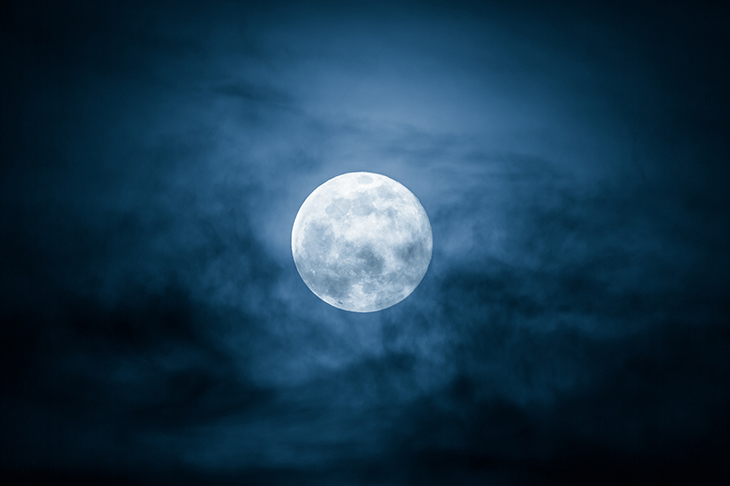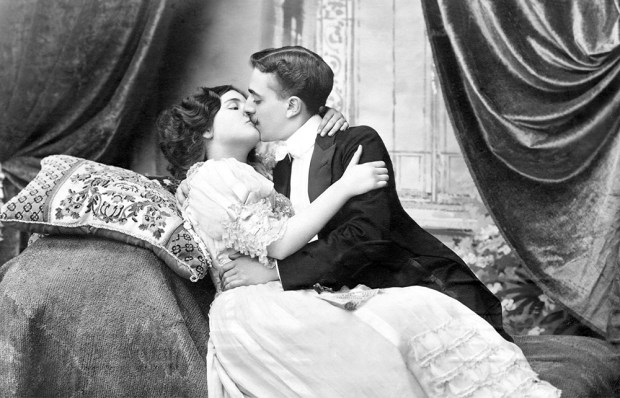I said my goodbyes and went outside with my trolley bag to wait for the taxi. While waiting, I looked across the sheep field at the sea. The wind direction had changed from due east to south-west and the surface of the sea, formerly turbulent, was placid. For the past ten weeks I’d been my mother’s full-time cook and carer. I’d put in a decent stint; nevertheless I felt guilty about leaving. Mum isn’t a great talker and, given the opportunity, neither am I.
For ten weeks we had coexisted in amicable and introspective quietness, while outside one Atlantic gale after another shook the house. When I came here back in January from France, where the boozy chatter is non-stop and there is little opportunity for introspection, I had lost touch with my subconscious mind. After ten weeks of hardly speaking, and venturing out of the house but rarely, I was in touch with it maybe a bit too much.
So wrapped up in myself was I that I had begun to notice, fear and despise the role of presentation and performance in ordinary conversation with the daily succession of visitors. Now I was leaving, I was dreading a simple ride in a taxi and being in a confined space and having to make small talk.
Then the taxi arrived. I slung my bag in the back, climbed in the front, and my rehabilitation began immediately. It was a kind of shock treatment. The taxi driver — late fifties, stout, wearing a country shirt of a decisive check — started talking before my backside had touched the fabric and he didn’t stop talking until he let me out, traumatised, at the station 25 minutes later.
This friendly man was almost bursting with inspiring thoughts and ideas. It was possible that in his private life he might occasionally have succumbed to the odd moment of introspection or even uncertainty, but I doubt it. The conversation went with vertiginous rapidity from innocuous agreement about the calmness of the sea, to the incredible power of the sea under certain climactic conditions, to the influence of the moon on the tides, to the moon itself, which, he claimed, was getting bigger and brighter with every passing month.
Driving about the countryside after dark, the size of the moon had become a special interest of his, he confided, and it was getting bigger, no possible doubt about it. Had I noticed that nearly every full moon was now a supermoon? And had I noticed how the shadows cast by trees on to the road by moonlight has suddenly become more defined? Well, yes, I said — I had. But I put it down to living much of the time in the south of France where the dust in the atmosphere is regularly swept away by powerful Mistral winds.
He shot me a long sad look, as though he felt sorry for one afflicted by such unthinking naivety. Did it not occur to me that the moon was bigger and brighter each month because it was in fact getting closer, dangerously closer, to the Earth? He knew it because he was seeing it with his own eyes every month. And the government knew it, too. But they were keeping quiet about it to avoid a mass panic. They were keeping it quiet by keeping it out of the newspapers, which print only what they are told to print.
Occasionally something slips out or is allowed out by the government to prepare us gently. For instance he had seen a tiny piece hidden among the back pages of a newspaper reporting a scientific paper that concluded that the moon was indeed getting closer to the Earth. But the reported measurements were, of course, fake. The scientists had stated a fraction of an inch every year, when anyone could see it was on a rapid collision course.
I asked him if he had heard of Professor Brian Cox, who is often on TV explaining the universe to us. No, he said, he hadn’t. Well, Professor Cox is a neighbour of ours, I said, and I will certainly ask him about it the next time he offers me a barbecued sausage. Again that look of ineffable pity. Obviously the scientists were colluding with the government and the newspapers to obscure the truth because of the share prices.
From this approaching catastrophe we went on to 9/11. The attack on the twin towers was inflicted not by the Arabs, but by a third party that he was reluctant to name. And from there we went on to the Bilderberg group, and from there we returned neatly to the hoaxes of global warming, ice melt and rising sea levels. ‘Does the level in your glass rise when the ice cubes melt? No!’ he said.
By journey’s end I felt somewhat rehabilitated to the outside world and I was grateful to him. But I didn’t tip him.
Got something to add? Join the discussion and comment below.
Get 10 issues for just $10
Subscribe to The Spectator Australia today for the next 10 magazine issues, plus full online access, for just $10.
You might disagree with half of it, but you’ll enjoy reading all of it. Try your first month for free, then just $2 a week for the remainder of your first year.















Comments
Don't miss out
Join the conversation with other Spectator Australia readers. Subscribe to leave a comment.
SUBSCRIBEAlready a subscriber? Log in